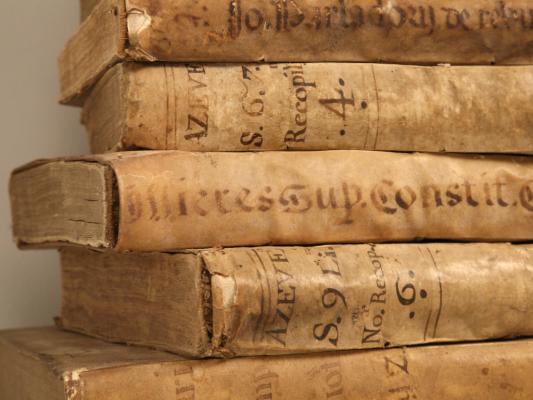
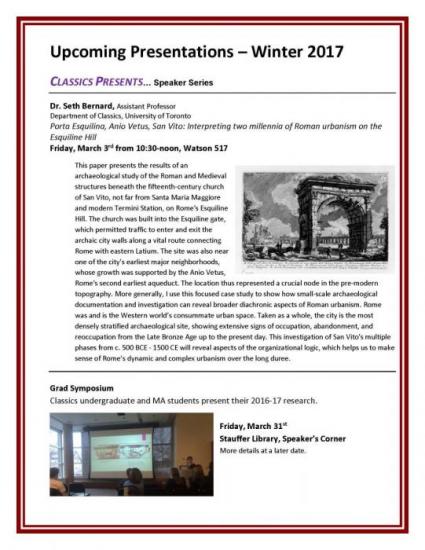
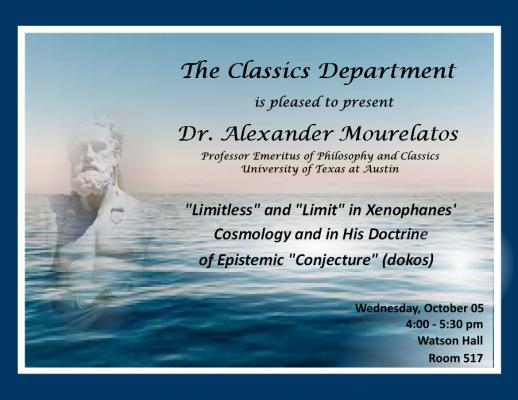
"Limitless” and “Limit” in Xenophanes’ Cosmology and in His Doctrine of “Conjecture” (dokos)
The paper disputes the skeptical interpretation of Xenophanes, but also the view that Xenophanes’ apparent epistemic pessimism stems from his adherence to the traditional pietistic contrast between gods and human beings. Xenophanes’ heavy use of comparative expressions supports rather our ascribing to him the conceptual insight that in many domains we deal with entities that intrinsically admit of “the more and the less”. The best we can do, accordingly, is to set a limit that is “defeasible”, either through a cautious judgment of the form “X is more F than Y”, or through a theoretical “construction”, which — rather in the spirit of modern “fallibilism” — always envisages the possibility of dismantlement and reconstruction for the “better”.
Queen’s First Professor: Peter Colin Campbell, Professor of Classical Literature
The Reverend Peter Colin Campbell was Queen’s first Professor of Classical Literature. He was also one of the 26 founders of Queen’s listed in the Royal Charter, a Trustee, the first person hired to teach at Queen’s, and the first member of the Arts Faculty. In spite of his importance in establishing our institution, very little has been written about Professor Campbell in Queen's historical accounts and there is no biography or image of him in Queen’s Archives. In conjunction with the Classics Department's 175th anniversary, Dr. Barbara Reeves has been tracking down information about Professor Campbell's personal life and about his time as a Professor at Queen’s, a Minister in Brockville, and the first Principal of the University of Aberdeen (Scotland). Come learn about the man who helped create our institution and taught our earliest students.
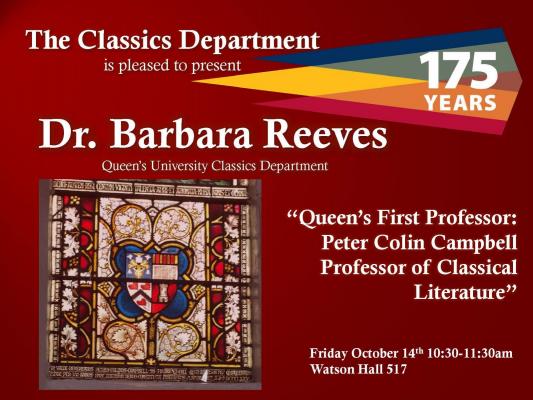
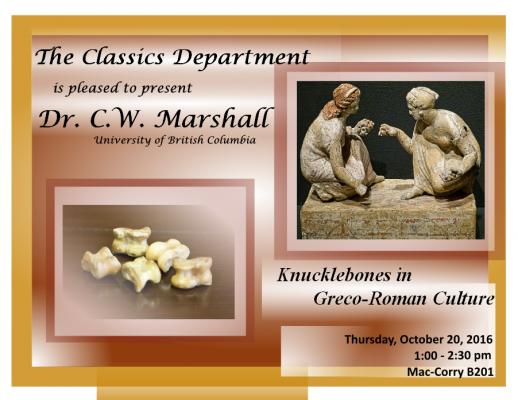
Knucklebones in Greco-Roman Culture
Knucklebones from sheep and goats were used as randomizers for divination, board games, and gambling in Greece and Rome. This paper incorporates archaeological and literary evidence to provide diverse new understandings of these everyday objects, exploring why artists created artificial knucklebones and providing a new statistical examination of how bones roll.
Research Strategies: An Introduction to Finding, Searching and Evaluating Resources in Classics
Need help with your Classics studies research?
Come to an Information Session, geared to Classics studies, led by:
Michele Chittenden,
Classics Liaison Librarian
Acting Head, Academic Services
Coordinator, Adaptive Technology Centre
Friday, October 28th
11:00-noon
Watson Hall 517
